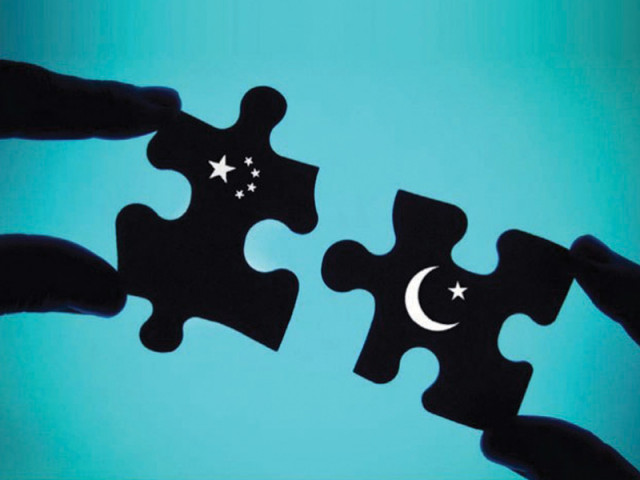Economic corridor: Experts outline future of bilateral relations
Call for consensus anti-terrorism policy.

Former ambassador Khalid Mehmood stressed that Pakistan needs to think strategically by strengthening its services and industries to benefit from this corridor in the times to come. PHOTO:FILE
Experts at a conference highlighted the importance of the “economic corridor” between Pakistan and China and called for expediting work on the project. They also urged for a commonly-agreed definition of ‘terrorism’, which has global ramifications.
A Chinese scholar said that though terrorism was a common challenge, there is no agreement on its definition or the ways to deal with it.
Urumqi Institute of Central Asian Studies (ICAS) Deputy Director Shi Lan said this while discussing different aspects of regional cooperation against terrorism at a three-day international conference on “Pak-China Relations: Bilateral and Beyond Bilateral Exchanges” at the Institute of Policy Studies here on Monday.
She was of the view that the US and its allies have spent astronomical amounts fighting the war against terrorism, yet it remains a potent threat.
Another expert, Dr Xie Daigang emphasised on the importance of Pak-China economic corridor as it will connect western China with Pakistan via road and rail. He said that this corridor was not merely a passage. Instead it will provide development opportunities in the areas of infrastructure, energy, agriculture, water conservation.
ISAS researcher Dr Zhihui Song said that Afghanistan faces many threats after the withdrawal of NATO forces in the areas of domestic security and economy. He stressed that Pakistan and China must collaborate and work closely with Afghanistan in order to maintain peace and stability in the region.
Former ambassador Khalid Mehmood stressed that Pakistan needs to think strategically by strengthening its services and industries to benefit from this corridor in the times to come.
The conference is being organised by the IPS in collaboration with the Chinese Institute of South Asian Studies (ISAS) along with the University of Peshawar and University of Management Technology (UMT) Lahore.
Published in The Express Tribune, April 29th, 2014.


















COMMENTS
Comments are moderated and generally will be posted if they are on-topic and not abusive.
For more information, please see our Comments FAQ